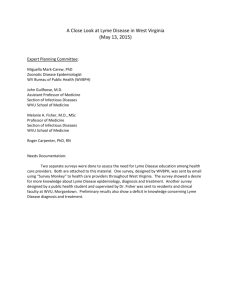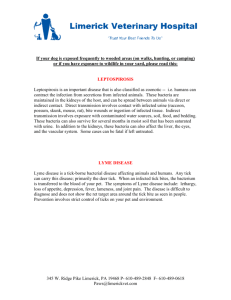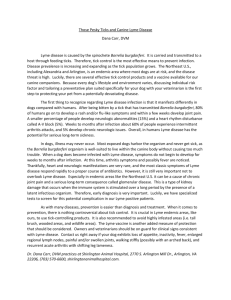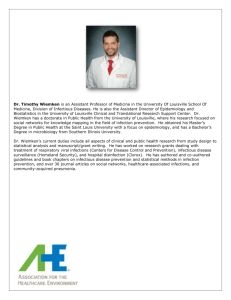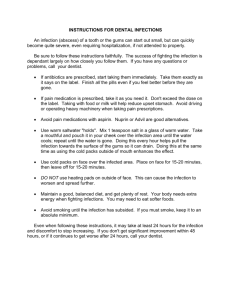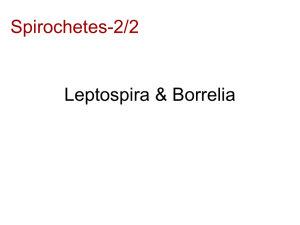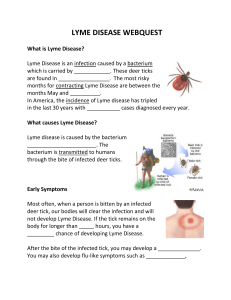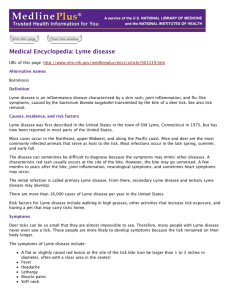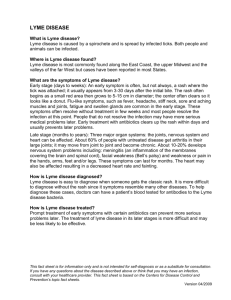Miyamotoi_Press_Release
advertisement
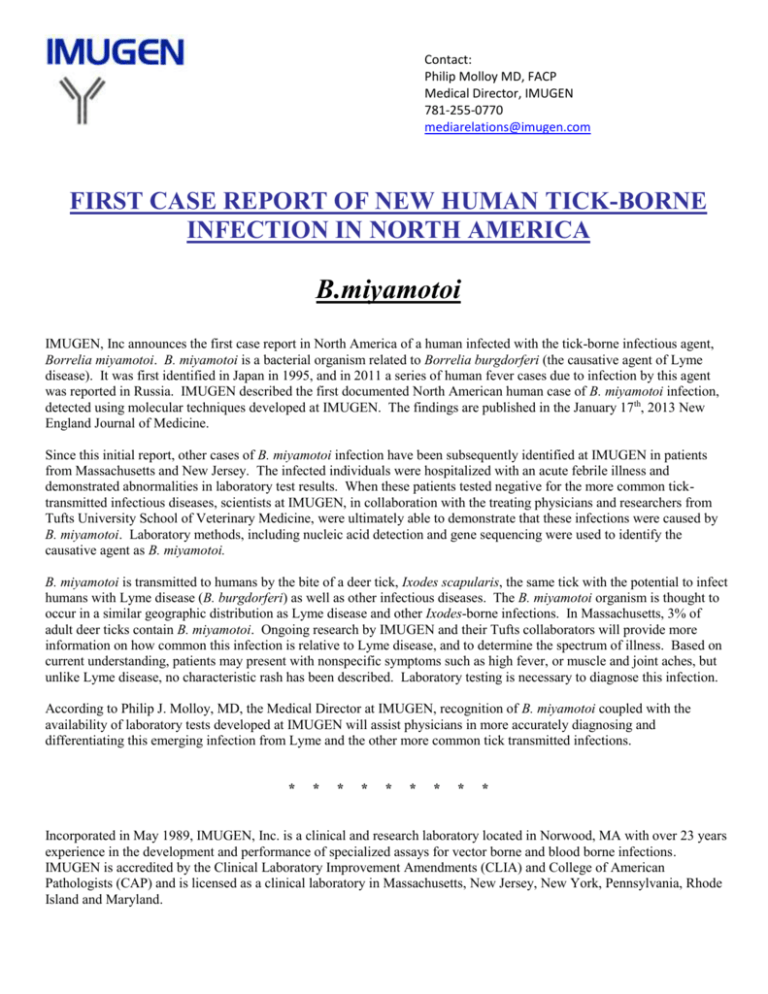
Contact: Philip Molloy MD, FACP Medical Director, IMUGEN 781-255-0770 mediarelations@imugen.com FIRST CASE REPORT OF NEW HUMAN TICK-BORNE INFECTION IN NORTH AMERICA B.miyamotoi IMUGEN, Inc announces the first case report in North America of a human infected with the tick-borne infectious agent, Borrelia miyamotoi. B. miyamotoi is a bacterial organism related to Borrelia burgdorferi (the causative agent of Lyme disease). It was first identified in Japan in 1995, and in 2011 a series of human fever cases due to infection by this agent was reported in Russia. IMUGEN described the first documented North American human case of B. miyamotoi infection, detected using molecular techniques developed at IMUGEN. The findings are published in the January 17th, 2013 New England Journal of Medicine. Since this initial report, other cases of B. miyamotoi infection have been subsequently identified at IMUGEN in patients from Massachusetts and New Jersey. The infected individuals were hospitalized with an acute febrile illness and demonstrated abnormalities in laboratory test results. When these patients tested negative for the more common ticktransmitted infectious diseases, scientists at IMUGEN, in collaboration with the treating physicians and researchers from Tufts University School of Veterinary Medicine, were ultimately able to demonstrate that these infections were caused by B. miyamotoi. Laboratory methods, including nucleic acid detection and gene sequencing were used to identify the causative agent as B. miyamotoi. B. miyamotoi is transmitted to humans by the bite of a deer tick, Ixodes scapularis, the same tick with the potential to infect humans with Lyme disease (B. burgdorferi) as well as other infectious diseases. The B. miyamotoi organism is thought to occur in a similar geographic distribution as Lyme disease and other Ixodes-borne infections. In Massachusetts, 3% of adult deer ticks contain B. miyamotoi. Ongoing research by IMUGEN and their Tufts collaborators will provide more information on how common this infection is relative to Lyme disease, and to determine the spectrum of illness. Based on current understanding, patients may present with nonspecific symptoms such as high fever, or muscle and joint aches, but unlike Lyme disease, no characteristic rash has been described. Laboratory testing is necessary to diagnose this infection. According to Philip J. Molloy, MD, the Medical Director at IMUGEN, recognition of B. miyamotoi coupled with the availability of laboratory tests developed at IMUGEN will assist physicians in more accurately diagnosing and differentiating this emerging infection from Lyme and the other more common tick transmitted infections. * * * * * * * * * Incorporated in May 1989, IMUGEN, Inc. is a clinical and research laboratory located in Norwood, MA with over 23 years experience in the development and performance of specialized assays for vector borne and blood borne infections. IMUGEN is accredited by the Clinical Laboratory Improvement Amendments (CLIA) and College of American Pathologists (CAP) and is licensed as a clinical laboratory in Massachusetts, New Jersey, New York, Pennsylvania, Rhode Island and Maryland.
